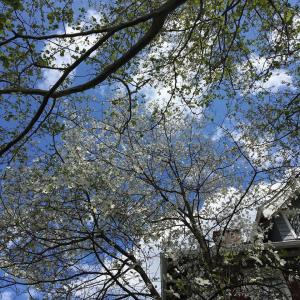I missed the boat on the Apologizing to Plants moment a few weeks ago. I saw it blowing around on twitter but there were so many things on twitter that day I couldn’t focus, and so other people said more helpful things about it, and I moved on with my life. But the organizer of the time thought it expedient to explain himself further, so that we might all observe the inherent reasonableness of bringing a lot of house plants into a chapel service, arranging them over some potting soil, and then reaching down within the soul to, “attend creatively to the end of our lives and respond to our ways of feeling.” Which seems an invitation to me to try again.
The liturgist, one Claudio Carvalhaes who is currently teaching “Creating Rituals in Community: The Work of Mourning The Earth and Extractivism” and “Ripping Earth Apart: A Ritual/Liturgical Response” at Union this fall, explained the service this way to his students:
Many of us have a disconnected relationship with nature and relate to nature as outside things, as “it.” Today we will try to create new connections by talking to the plants, soil, and rocks and confess how we have related with them. Confessions are also forms of mending relations, healing, and changing our ways. We are all manifestations of the sacredness of life and the “we” of God’s love is way beyond the human, so let us confess to “each other” including plants, soil, rocks, rivers, forests.
Carvalhaes uses his piece in Sojourners to articulate a vague idea about confession, and to pull out a few verses from the Bible about all of creation calling out, groaning even, for its redemption. Creation speaks, he says, and therefore has some inherent subjective quality that invites us to speak back. Wrapped up in it all, of course, is Christianity’s oppressive colonial proclivity towards “Empire” and so Carvalhaes lightly flutters from “The heavens declare the glory of God,” to, “This understanding demands a reinterpretation of democracy. When are we going to consider the seeds and the panther and the zebras and the cows and horses as part of our democracy?”
One student, processing the task before her, said to one of the plants, “I don’t know how to relate to you in this subjective way. I am afraid that if I do I might discover a level of pain that I don’t know whether I can bear.” And I, reading the article, feel that perhaps she has been wiser than she thinks. Because, unwittingly, gathering a lot of plants and arranging them and kneeling before them to confess one’s sins, says a lot of things, and all of them are heartbreaking.
The first thing it says is something that a lot of Christians have noticed for a long time. It says that the created order entirely obeys God—all of it. All of if that is, except for the human part. I have a nice little essay tucked somewhere in my book piles by Maria Montessori in which she describes, in beautifully clear language for the youngest child, how all of creation obeys. The wind obeys, the molecules obey, the animals obey. God set forth gracious laws to govern the order of every speck of his creation, everything we can see and can’t see, and everything obeys. But man does not obey. And so, because we don’t obey, won’t obey, we break the beautiful rhythms of creation’s obedience. When you look to the heavens to see their declaration of glory, in the same moment you can look at yourself and see your own ruining disobedience. This is the place, because of global climate change, that so many young people find themselves. Looking at a world they know should be good, they see it is not, and they come undone.
The second thing it says is that, as in every age, the trouble of that disobedient self is just as intolerable as it has always been, from the garden, as it were. It is a lot nicer to arrange all the plants and apologize to them, to externalize one’s guilt, than to look at God and say, “I have sinned…I have fallen short of your glory.” Big systemic, global, political answers to a disordered creation are lots more interesting and fun that telling God that you personally are wrong and there’s nothing you can do to make it better.
The third thing it says is that incoherence is preferable to true repentance. If democracy now demands that seeds and zebras be brought in to the political calculations of the age, not to be given a vote, of course, but to be used as weapons just as everything else is, then we are at peak absurdity. The subjectivity of vegetable life is invited intersect with my subjective idolatry in a burgeoning garden of madness.
Trouble is, the deep coherence at the root of every plant—that God is sovereign and we are isolators—will eventually grow into that eschatological tree we’re all so afraid of, Judgement. But the Judge will not be confused, and we will finally have to say we were wrong. Until then, go to the one who was lifted up to die on on that tree, and ask him to save you.












